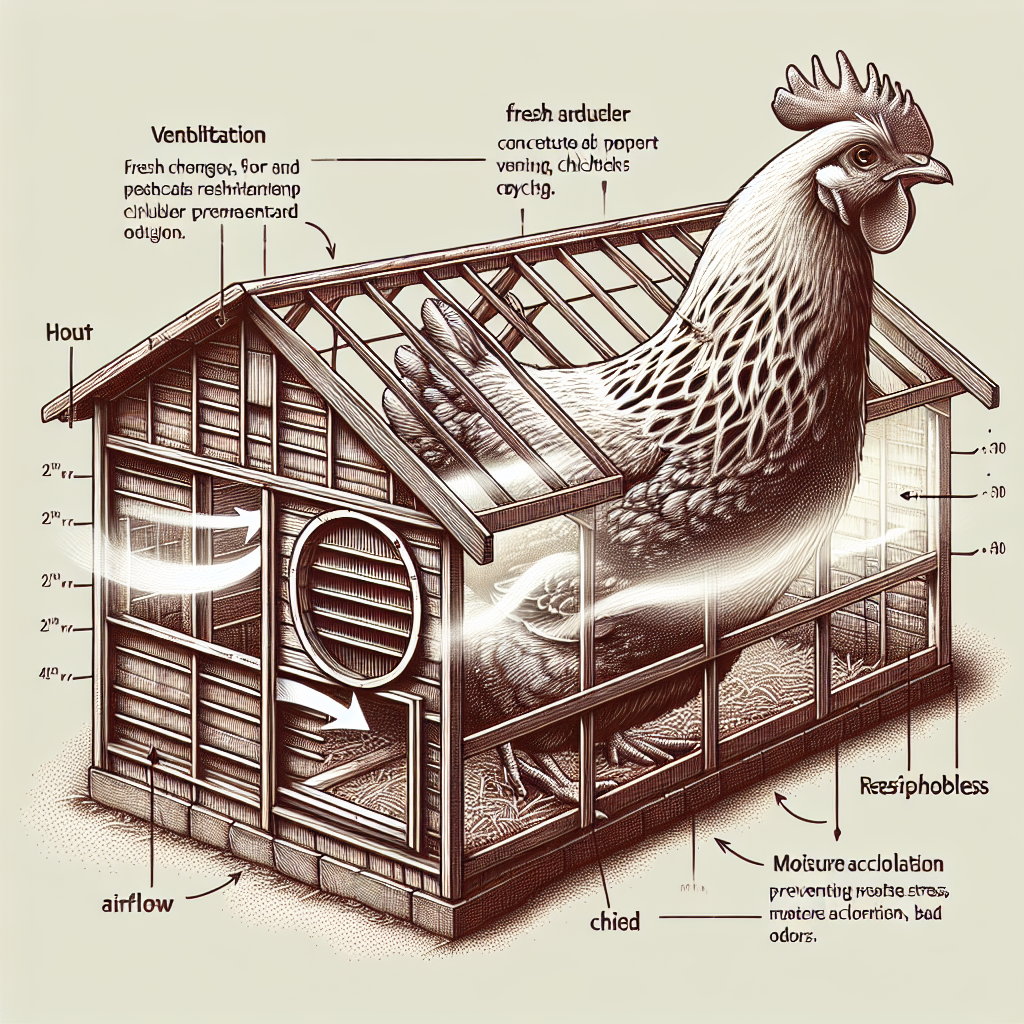In the world of chicken care, it is crucial to know the best practices for isolating and treating sick chickens. Whether you are a seasoned chicken owner or a beginner in the field, understanding how to properly handle and care for an ill chicken can make all the difference in their recovery. From creating a separate isolation area to administering the right medications, this article will guide you through the essential steps for ensuring the well-being of your feathered friends.
Best Practices for Isolating and Treating Sick Chickens
Keeping your chickens healthy and thriving is essential for any poultry enthusiast. However, just like any other living creature, chickens can fall ill from time to time. When this happens, it is important to promptly address the issue to prevent the spread of disease and ensure the well-being of your flock. In this article, we will explore the best practices for isolating and treating sick chickens, so you can provide the care they need and protect the rest of your flock.
Creating a Separate Quarantine Area
The first step in isolating and treating sick chickens is to create a separate quarantine area. This area should be isolated from the rest of your flock, preferably in a different coop or enclosure. This ensures that the sick bird is not able to come into contact with healthy chickens, minimizing the risk of spreading the disease.
Make sure the quarantine area is clean, well-ventilated, and free from any potential sources of infection. Regularly clean and disinfect the area to maintain a healthy environment for your sick chicken.
Identifying Sick Chickens
Early detection is crucial for the successful treatment of sick chickens. By being observant and familiarizing yourself with the signs of illness, you can quickly identify when a chicken is unwell. Common symptoms of illness in chickens include lethargy, loss of appetite, abnormal droppings, changes in feather appearance, sneezing or coughing, and reduced egg production.
Routine health checks should be part of your regular chicken care routine. By monitoring your flock closely, you can identify any signs of sickness and take action promptly.
Isolating the Sick Chicken
Once you’ve identified a sick chicken, it is vital to isolate it immediately. This prevents the spread of disease within the flock and allows you to provide dedicated care to the sick bird. Transfer the sick chicken to the quarantine area you have prepared, ensuring it has sufficient space and access to water and food.
When handling the sick bird, it’s essential to practice proper hygiene to prevent further contamination. Wash your hands thoroughly and change your clothes before interacting with healthy chickens to avoid transmitting any potential pathogens.
Providing Proper Ventilation
Proper ventilation is crucial for maintaining a healthy environment in the quarantine area. Good airflow helps remove moisture, reduce the risk of bacterial growth, and prevent the buildup of ammonia. Ensure that the quarantine enclosure has adequate openings or vents to allow fresh air to circulate while providing protection from drafts.
Regularly monitor the ventilation in the isolation area and adjust as necessary to ensure optimal air quality and comfort for the sick chicken.
Maintaining the Right Temperature
Maintaining an appropriate temperature is crucial for the well-being of sick chickens. Poultry generally prefers a temperature between 65°F and 75°F (18°C to 24°C). However, the specific temperature requirements may vary depending on the illness and the age of the chicken.
Use a reliable thermometer to monitor the temperature in the quarantine area regularly. Adjust heating or cooling measures accordingly to provide a comfortable and conducive environment for your sick chicken’s recovery.
Ensuring Adequate Lighting
Proper lighting is important not only for the overall well-being of chickens but also for their recovery when they are sick. Adequate lighting helps stimulate their appetite, maintain their daily routines, and support their immune system.
Ensure that the quarantine area has adequate natural or artificial lighting. Provide a daily light-dark cycle of around 12-14 hours of light and 10-12 hours of darkness to mimic natural daylight patterns. Avoid harsh lighting or sudden changes in lighting, as these can cause stress to the sick chicken.
Implementing Biosecurity Measures
Biosecurity measures are vital for preventing the introduction and spread of diseases among your flock. When dealing with sick chickens, it becomes even more crucial to implement proper biosecurity practices.
Always clean and disinfect your hands and any equipment or tools used in the quarantine area. Limit access to the isolation area to essential personnel only, and avoid transferring disease agents by using separate footwear or boots when entering the quarantine space. Disinfect any footwear and wash hands thoroughly after leaving the area.
Administering Medication
In some cases, administering medication may be necessary to treat the sick chicken. It is important to consult with a veterinarian or poultry expert to determine the appropriate medication and dosage for your specific situation.
Follow the prescribed dosage and administration instructions carefully. Be sure to complete the full course of treatment and avoid using medications intended for other species without proper guidance.
Monitoring and Supportive Care
Once your sick chicken is isolated and receiving treatment, vigilant monitoring is essential. Regularly observe the bird’s behavior, appetite, and overall condition. If you notice any worsening symptoms or lack of improvement, consult a veterinarian promptly.
Providing supportive care is also crucial during the recovery process. This includes ensuring the sick chicken has access to fresh water and nutritious feed. Consider providing supplements or probiotics to help boost their immune system and aid in their recovery.
Seeking Professional Help
While implementing the best practices for isolating and treating sick chickens can go a long way, there may be instances where professional help is necessary. If you are unsure about the illness or if the chicken’s condition deteriorates despite your efforts, it is essential to seek veterinary assistance.
A professional veterinarian or poultry expert will have the expertise and experience to diagnose and treat the illness effectively. They can provide guidance specific to your situation and help you navigate the best course of action to ensure the health and well-being of your flock.
Remember, providing proper care and attention to your sick chickens is not only important for their individual recovery but also for the overall health and longevity of your flock. By following these best practices, you can effectively isolate and treat sick chickens, minimizing the risk of disease transmission and promoting the well-being of all your feathery friends.




